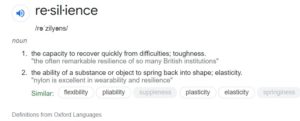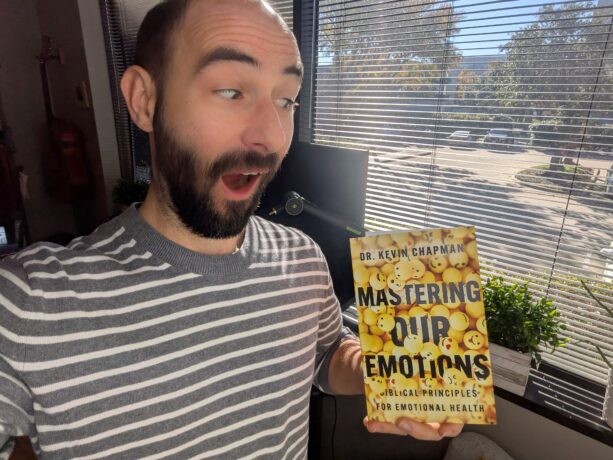
Good news: resilience in life can be learned; it’s not just “trait-based” (like a more persistent personality trait).
We all set ourselves up for defeat at times through our beliefs. In CBT, we typically call these cognitive distortions. Whatever thoughts we have that are biased or self-defeating will always limit us in some way, often in ways we don’t intend. They often sound harmless, such as “Old dogs can’t learn new tricks.” “I tried it once- it didn’t work.” “I’m just not that kind of person.” “They can’t change.”
What is Resilience?
Oxford Dictionary defines resilience as “the capacity to recover quickly from difficulties; toughness.”

How important this is! We teach our children resilience every day when the feel like they can’t do something and we cheer them on, knowing they can. Even when a child can’t rise to all occasions at all moments, over time, in the normal course of development, a child can be exhorted to develop flexibility and gain resilience.
Are You Resilient?
Do you ever minimize your ability to do this? To bounce back? “Springiness?”
A recent study– utilizing a United States University marching band, of all things- discovered how the ability to bounce back from distress has more to do with learning and growth than an unmovable, “static” trait in a person. As the British Psychological Society adeptly summarizes: “So the key takeaway from the results is that resilience isn’t simply a case of personal character.”
- Burnout occurred both in people who scored high AND low in emotional stability. I.e., burnout can happen to all of us.
- Higher emotional stability, though, predicted both:
- Staying committed
- A feeling of belonging
- Those who state a “feeling” of commitment (e.g., return to the band next year, despite uncomfortable feelings at times) were more likely to follow-through.
The Takeaway
I hope you’ll remind yourself today that despite how you feel in a given moment, the ability to grow and learn is human- this includes cognitive flexibility and resilience. You can actually learn resilience! Good news for those in therapy- and good news for everyone!








Leave a Reply